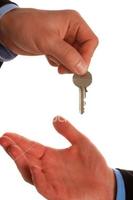If you plan to buy a business, you should therefore obtain an independent valuation (or two) and seek unbiased professional advice, e.g. from a local bank manager or accountant, particularly regarding your rights and obligations on taking over the business.
If you’re taking over an existing and operating company, French labour law compels you to respect existing employment contracts (which isn’t a bad thing if you require help, as experienced staff are priceless). However, you may not be compelled to employ them if you cannot afford it. If you want to own a licensed business (e.g. butcher’s, hairdresser’s or pharmacy), you must, of course, hold a qualification in the profession
Fonds de Commerce & Cession de Bail
When a business is for sale in France, there are often separate prices for the intangible assets of the business, such as the clientele, contracts, trademarks and patents, and leasehold rights, which are called the fonds de commerce (or simply fonds) and the property or ‘walls’ ( murs), e.g. the building housing a hotel or restaurant business, which may be bought or rented . Other tangible assets of a business, such as equipment and tools, stock and work in progress, are usually excluded from a sale or subject to separate purchase.
The sale of a business is, in general, a transfer of assets but not liabilities, although you’re free to negotiate the liquidation of liabilities with the vendor. The seller is legally bound to disclose all liabilities, but he isn’t required to provide any guarantees or warranties to the purchaser. Certain contracts, e.g. employment contracts (and therefore existing staff), insurance policies and lease agreements, are automatically transferred with the sale of fonds, whereas others, e.g. franchises, licences and supply agreements, aren’t.
Assessing the value of a fonds de commerce is a difficult process, often involving more art than science, but it’s essential to obtain at least one professional valuation and to check the value yourself. (French property agents may be able to give you a more accurate idea of the value of a fonds than a foreign agent.) As with business purchases anywhere in the world, the key is thorough research.
Whereas the value of the building is usually easily comparable with other buildings in the area, the value of the business may be impossible to relate to anything and you must make your own assessment of whether it’s reasonable or not. If not, it may be worth negotiating rather than simply looking elsewhere. A guide to assessing the value of a business can be found on the website of the magazine ICF l’Argus des Commerces (www.cession-commerce.fr ).
Premises may be let without a fonds de commerce, but with a lease ( bail), which allows you to operate a certain type or types of business. (This is common with retail premises, such as shops.) The lease is said to be ‘yielded’ to you ( cédé); advertisements often state ‘ cession de bail’, indicating that the lease is for sale. Buying a lease is usually cheaper than a fonds de commerce, as the premises (known in this case as a local) usually contains no equipment or stock and there may be no existing or even recent clientele. The value of a bail is therefore even more difficult to assess than that of a fonds de commerce, but the same basic ‘rules’ apply.
Taxes
The vendor of a business is liable for certain transfer taxes and other costs ( droits de mutation), and he may ‘include’ these in the selling price. Check not only what taxes and fees he has added but whether these are indeed payable, as there are exemptions for certain types of transfer.
Checks

In addition to the usual checks you should make before buying or renting a property, there are certain things you should check (or preferably have checked by a lawyer experienced in commercial property transactions) before buying (or even renting) a business premises.
You can start by checking the published information on the company’s finances (turnover, profit, etc.), which can be done online. Go to the information site of Les Greffes des Tribunaux de Commerce (www.infogreffe.fr ) and enter the company’s details (name or SIREN). You must study the articles of incorporation as well as the financial statements and all the books and records of the company you’re interested in buying. You should ask to see a current business certificate and any other relevant authorisations. Verify turnover figures and talk to clients, customers, suppliers, bankers, landlords and other local people to make sure you know as much as you can about the business and its financial situation as well as the professional and personal relationships on which its success depends.
Check that no one is objecting to the sale of the business. Just as anyone may object to an application for planning permission, anyone may object to the sale or transfer of a business. Objections can be lodged at any time from the moment a business is offered for sale until ten days after the signing of the sale contract. Your lawyer should find out whether there are any legitimate objections, e.g. by a family member who should have inherited all or part of the business or its premises or by a supplier who’s owed money.
Make sure the business you’re buying is debt-free, including outstanding taxes or social security contributions and outstanding payments for equipment or stock. You can check whether any equipment or installation is subject to a lien ( nantissement) or other debts ( endettement) on the Greffes des Tribunaux site.
You must also check that there are no ‘hidden vices’ ( vice caché), which could compromise your use of the premises. For example, you may be restricted as to exterior renovation or alteration to a building, particularly if it’s a listed building ( monument historique), even to the extent of painting it a different colour or putting up a new sign.
Procedure
The procedure for buying a business is essentially the same as for starting a business, coupled with that for buying or renting property. There are, however, a few steps that are different, and these partly depend upon the type of business, its legal form and how the parties involved in the purchase want to handle the business.
If the business is owned by more than one person, the sale must be carried out in accordance with the procedure outlined in the articles of incorporation. In some forms of business, the shareholders or partners must approve (often unanimously) the sale of any ownership interest to an outsider and this, of course, must be documented (usually through the minutes of a special shareholders’ meeting).
Once any necessary agreement has been obtained, a sale document must be drawn up. This can be done by a notaire (who charges a fee, usually calculated as a percentage of the selling price) or can be done by the parties involved, with or without the assistance of lawyer or accountant. (There are sample sale documents in many of the business books and publications aimed at small businesses.)
If you’re buying a lease rather than the freehold, the sale contract may be called a compromis de cession rather than a compromis de vente; what you’re actually buying is the right to the lease ( droit au bail). As with all property purchase contracts, there is a deadline by which you must pay the full agreed price; if you don’t, the fonds de commerce may revert to the seller.
You may wish to have clauses included in the contract forbidding the vendor (and his immediate relatives) from starting or investing in a similar business in the area or from using or selling the business’s database, for example. As a notaire’s function is merely to ensure that the government gets the taxes due to it and not to protect the interests of the buyer or the seller, you should have a contract checked by a legal expert before signing anything.
The sale must then be registered with the tax office, which involves the payment of transfer tax on the shares – normally 2 to 4 per cent depending on the nature of the shares and how long the seller has held them.
The appropriate changes to the articles of incorporation must be drafted and approved by the new owner(s) and the revised articles registered with the RNCS, along with the change of management, which also must be published in one of the official newspapers and the BODACC, at the purchaser’s expense. Any other changes occasioned by the sale (e.g. change of company name or address, change of statut of the director) should be registered at the same time, as everything can usually be done for a single fee (around € 200).
The relevant CFE is a good source of information about the details of transferring business ownership and can often help in securing and filing the forms – provided you’ve paid your ‘help’ fee!
This article is an extract from Making a living in France.
Click here to get a copy now.


